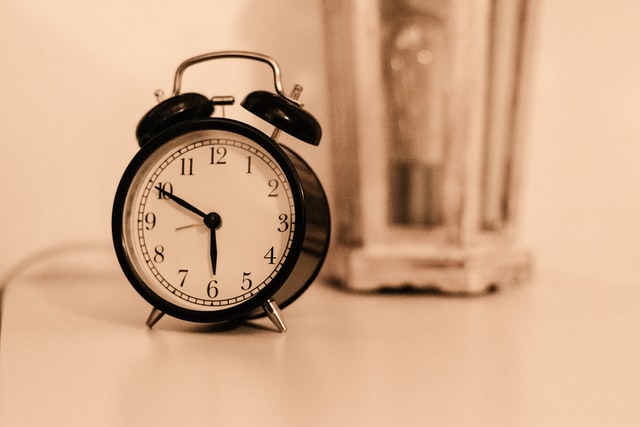Most of us have a hard time waking up early in the morning, but there’s significant evidence that a poor sleep schedule can affect your physical and mental health. While it won’t be easy to find your perfect sleep schedule, you’ll need to adjust your regime to improve your well-being.
The Benefits of Waking Up Early
There are so many benefits to waking up early, so before you start using our tips to sleep better, consider the following reasons why you should develop a regular sleeping schedule.
- Waking up early can help you eat a healthier diet
- Waking up early gives you more time to use a skincare routine
- Waking up early gives you more time to exercise
- Waking up early improves your concentration
- Waking up early enhances your productivity
- Waking up early can improve your quality of sleep
- Waking up early gives you more access to quiet time
It’s important to mention that “waking up early” doesn’t mean waking up before 6 in the morning; it could mean waking up at 10 am or 1 pm, depending on your daily schedule. That’s because our bodies rely on an internal alarm clock called a “circadian rhythm” to wake up and fall asleep.
Understanding Your Circadian Rhythm
While there isn’t a scientifically-backed best time to wake up, our circadian rhythm is influenced by the rising and setting of the sun. That’s because the sleep-inducing hormone, melatonin, is only created in your body after the sun sets, whereas serotonin is produced while the sun is out.
Exposing your skin and eyes to sunlight is essential when you first wake up because it helps your body create enough serotonin to stay active for 12 hours. On the other hand, you need to ensure your room is pitch black and free from blue light to have a more restful sleep.
Some Disorders Can Disrupt Your Circadian Rhythm
If you’re unable to develop a consistent sleeping schedule despite your best efforts, you may have an underlying sleep disorder. For example, people with ADHD, Autism, or insomnia tend to have circadian rhythms that differ from people who don’t have these mental or sleep disorders.
Time Matters Less Than a Stable Sleep Routine
If you can’t choose when you wake up or fall asleep due to work commitments, don’t focus on getting enough sun first thing in the morning. As long as you expose yourself to UV light when you wake up, you’ll be able to create a consistent sleep schedule that promotes healthy habits.
How to Find the Perfect Time to Wake Up
Here are a few tips you can use to find the perfect time to wake up and fall asleep:
- Start Slow: Try waking up 15-30 minutes earlier each day.
- Sleep Early: Get into bed 15-30 minutes before you’re supposed to sleep.
- Do Something Boring: Read a boring book before bed. Don’t use technology.
- Set Multiple Alarms: If you’re a heavy sleeper, set multiple alarms.
- Leave the Bedroom: Go right to the bathroom or kitchen the minute you get out of bed.
- Have a Reason: Do something positive in the morning, so you’ll feel excited to wake up.
- Reward Yourself: Try to bride yourself with a longer shower or treat.
- Use That Time: Adopt an exercise routine or take an online class.
- Don’t Overeat: Overeating a few hours before bed can keep you up at night.
- Make a Commitment: Work past the dread of waking up early through force of will.
While these tips can help you find the best time to wake up, you’ll need a stable morning and night routine to stay consistent. For example, the first thing you should do in the morning is make your bed and the last thing you should do at night is keep your phone out of arm’s reach.

